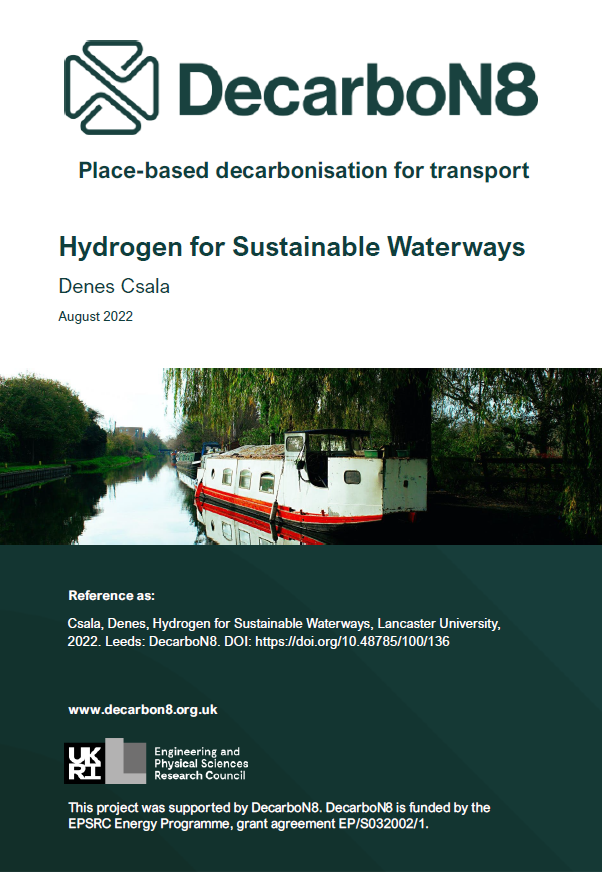Hydrogen for Sustainable Waterways
Authors: Denes Csala (2022)
PDF (29 pages, 3 MB)
The aim of this project was to investigate the techno economic case for converting diesel powered light watercraft to zero-carbon (fuel cell) or low-carbon (combustion) hydrogen powered units
Key Findings
The Hydrogen for Sustainable Waterways (H4SN) project performs a techno-economic feasibility study on converting small passenger boats from a diesel power train to hydrogen fuel. The target location is the Lancaster and Cumbria region. Furthermore, it compares the hydrogen-based propulsion and storage against other zero-carbon alternatives, such as battery electric propulsion, from a technological, economic, environmental and safety perspective.
It also looks at what refuelling infrastructure would be required and where the hydrogen could be sourced from. It delivers a fully costed and subsequently submitted proposal for converting one or two watercrafts to hydrogen in the Lake District National Park, with a clear understanding of the new supply chain requirements for fuel and maintenance. During the process, it also raised awareness of stakeholders of the benefits of moving towards hydrogen based power trains for leisure craft.
For the technical analysis, conducted in partnership with Kingfisher and Hypermotive company collaborators, a techno-economic feasibility was conducted that assessed the conversion of an existing leisure canal boat (owned and operated under a regular cruise schedule by Kingfisher) to fully hydrogen-based fuel cell electric operation to serve the entire route autonomously, fossil-free. It was found that a conversion would be possible using a hydrogen storage tank on top of the vessel, compose of 17 standard small-sized Linde hydrogen storage cylinders, with 2 hydrogen refuelling points (not actual stations, just cylinder swap-points) at the ends of the cruise journey. This would equate to a usage of 27kg of hydrogen/month. Due to the high cost of stored hydrogen, this would lead to an increase in monthly operational costs from ~£400 to ~£5000. With mobile refuelling stations, this could be reduced to ~£2000 – not taking into account the capital cost or rental of the station. However, with hydrogen prices at existing large-scale commercial refuelling stations, such as the one at Shell/ITM Rotherham, the monthly running cost could be as low as £270. This underlines the necessity of thinking in terms of infrastructures when developing future sustainable waterway transportation.

